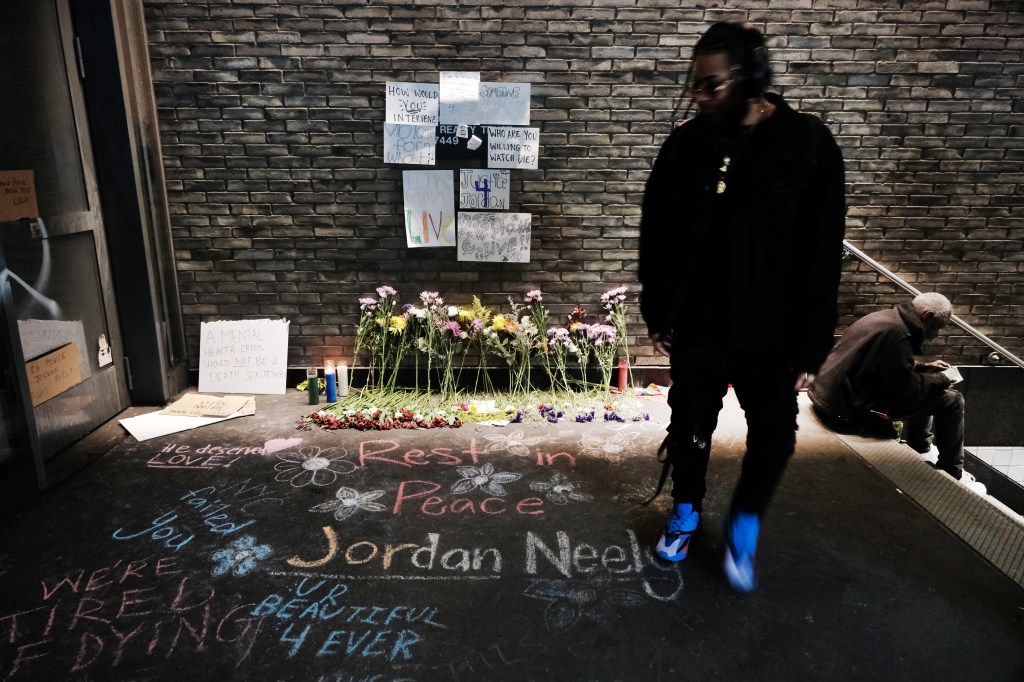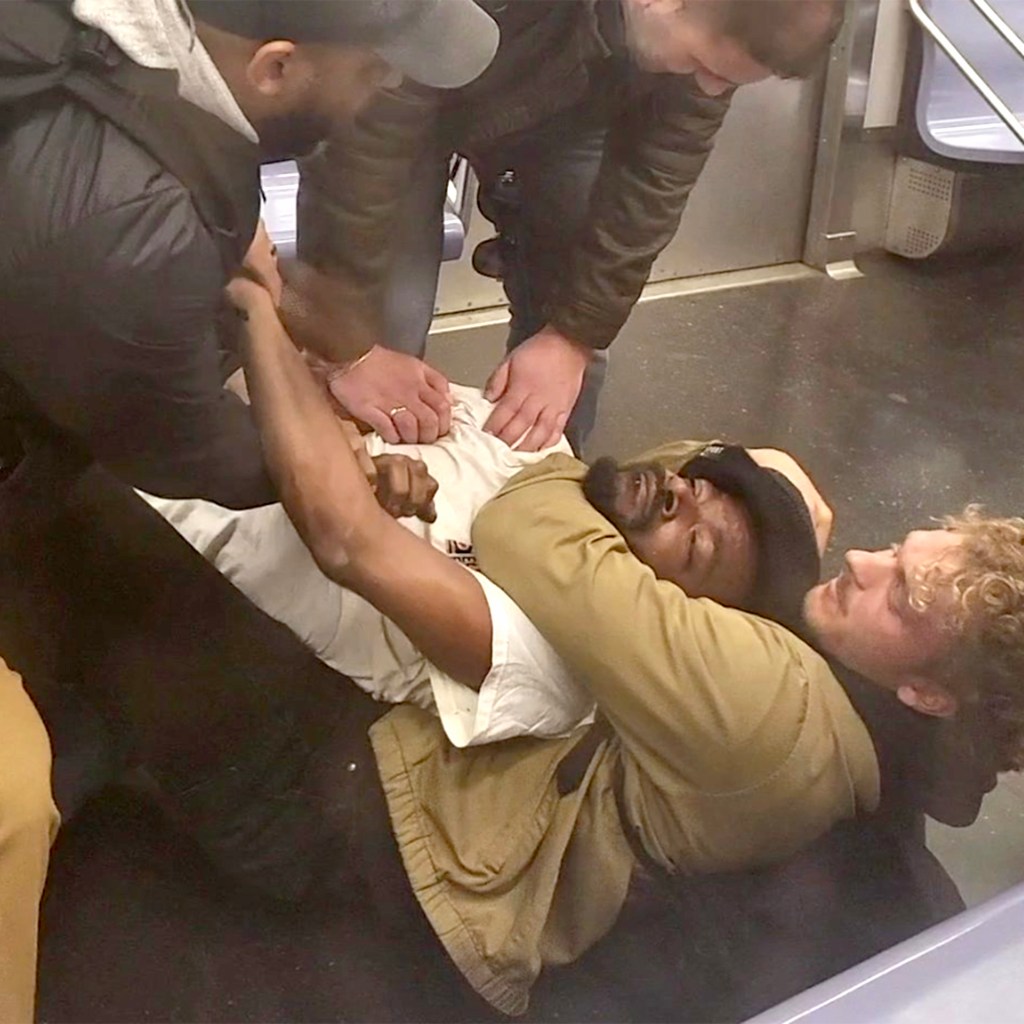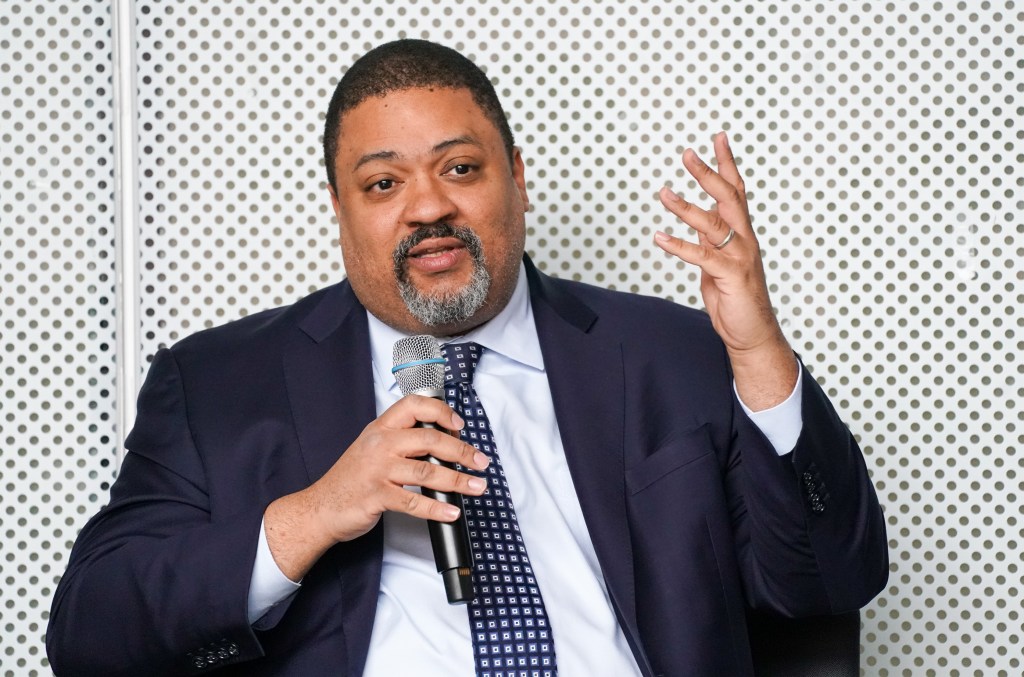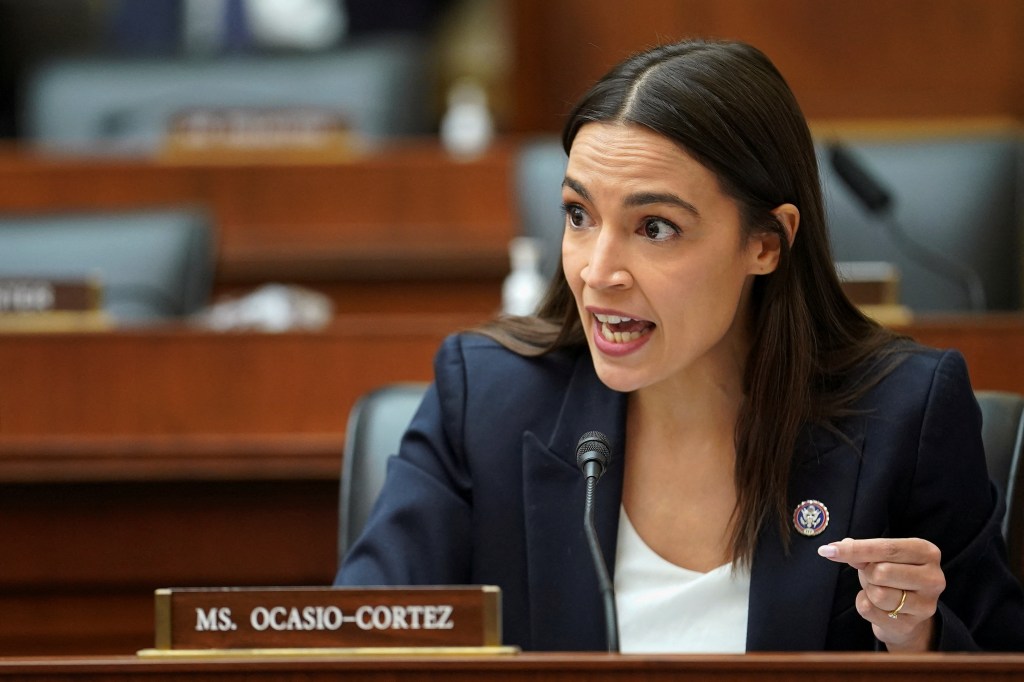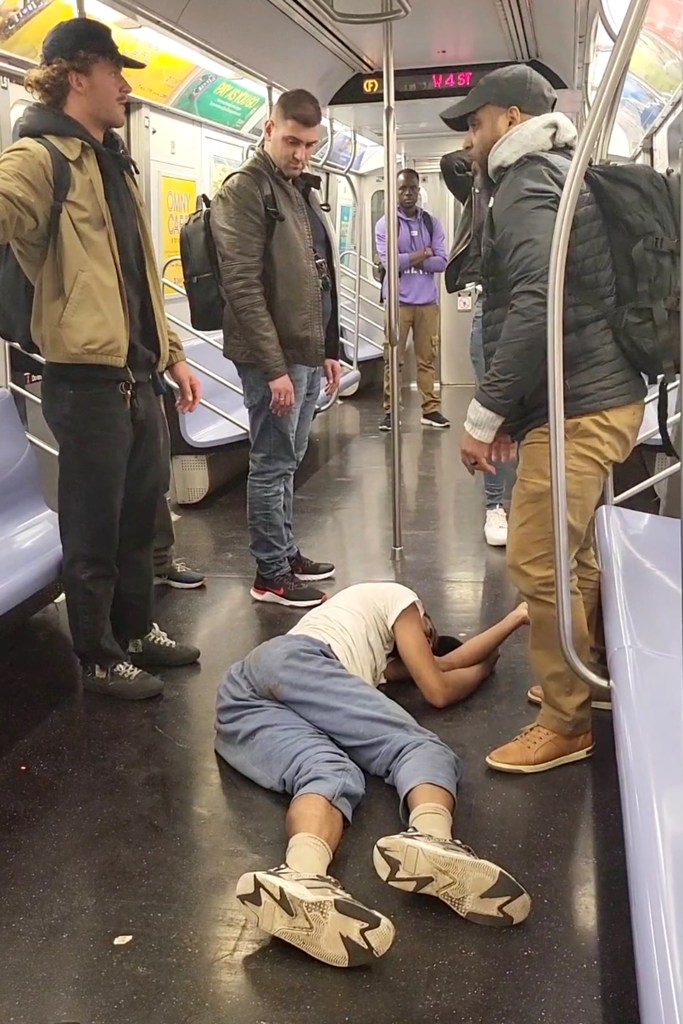DA Bragg likely to punt fatal NYC subway chokehold case to grand jury: experts
Manhattan District Attorney Alvin Bragg could have already charged the former Marine who allegedly choked Jordan Neely to death on the subway last week — but he will likely punt the decision to a grand jury because of the case’s explosive nature, legal experts said Wednesday.
Bragg is caught between the hammer and the anvil. Many have called for authorities to charge Daniel Penny — who wrapped Neely, 30, in the fatal chokehold May 1 — while others argue the 24-year-old was just trying to protect himself and fellow subway riders from a threatening homeless man.
Presenting the case to a grand jury and allowing its members to choose whether or not to bring an indictment would allow Bragg to sidestep a potential political minefield, ex-prosecutors and defense attorneys told The Post.
“Bragg has to go to the grand jury for political cover — district attorneys love the grand jury for this reason,” said Michael Discioarro, a criminal defense attorney and former Bronx prosecutor.
Jeffrey Lichtman, the defense attorney who’s represented Joaquin “El Chapo” Guzman and John Gotti Jr., thinks the public pressure will have an outsized effect on Manhattan’s media-sensitive prosecutor.
“There’s been massive demonstrations, and I think all that stuff influences a very political person like Alvin Bragg,” Lichtman said. “Bragg is a political animal and he’s mainly concerned about how he’s perceived in the press … Right now, there seems to be a push for grand jury action and I expect him to do such a thing.”
Taking the case to a grand jury isn’t necessarily a bad thing, argued Jason Goldman, a former Brooklyn prosecutor and current criminal defense attorney. And charging Penny with a lesser crime — such as criminal manslaughter instead of intentional homicide — might appease both sides, he said.
“Doing it the grand jury way takes it out of his hands a little bit,” Goldman said. “And if [Bragg] gets a charge like that — and it’s done via grand jury as opposed to his arrest — I can’t see how it’s not a slam dunk for him on all sides.”
Neely died after the confrontation with Penny, who grabbed him as he yelled and threw trash at other riders on an F-train in Manhattan. The city medical examiner has ruled his death a homicide, but no one has been charged — though the DA’s office has confirmed it is investigating.
Bragg has been under the microscope since Neely’s death — and the subsequent release of a shocking cell phone video that caught the tragic end of the fatal encounter.
Demonstrators have taken to the streets several times over the past week to protest the killing, and Democratic politicians have been quick to demand retribution.
“Jordan Neely was murdered,” far-left Congresswoman Alexandria Ocasio-Cortez wrote on Twitter on May 3.
“But bc Jordan was houseless and crying for food in a time when the city is raising rents and stripping services to militarize itself while many in power demonize the poor, the murderer gets protected w/ passive headlines + no charges. It’s disgusting.”
Neely’s family has also called for Penny — who was questioned by the cops after the encounter and then released — to be locked up. Penny’s attorneys have said he didn’t intend to kill Neely.
Steven Raiser, one of Penny’s attorneys, said Wednesday that prosecutors have not told his legal team that they’ve impaneled a grand jury, even as rumors abound about its pending creation.
The DA’s office did not return a request for comment Wednesday.
Asked about Neely during at an event at John Jay College of Criminal Justice Tuesday, Bragg said his office would “follow the facts.”
“A few times during my tenure there’s been a high profile matter that the public knows a lot about, which is different to how the vast majority of how our cases start, that aren’t in the papers but affect everyday New Yorkers deeply,” he said at the National Urban League “Safe & Just Communities Summit.”
Bragg said he didn’t want to impair the investigation by speaking publicly about it and noted that he wasn’t legally able to discuss grand jury matters.
“Sometimes people peer into the silence and look at that as if ‘oh the office isn’t doing anything or it’s not important,'” he said. “It’s quite the contrary, it is because it’s our solemn obligation to assess the facts and apply the facts to the law and how gravely and seriously we take that, that we don’t speak lest we impair any investigation.”
Additional reporting by Jack Morphet








